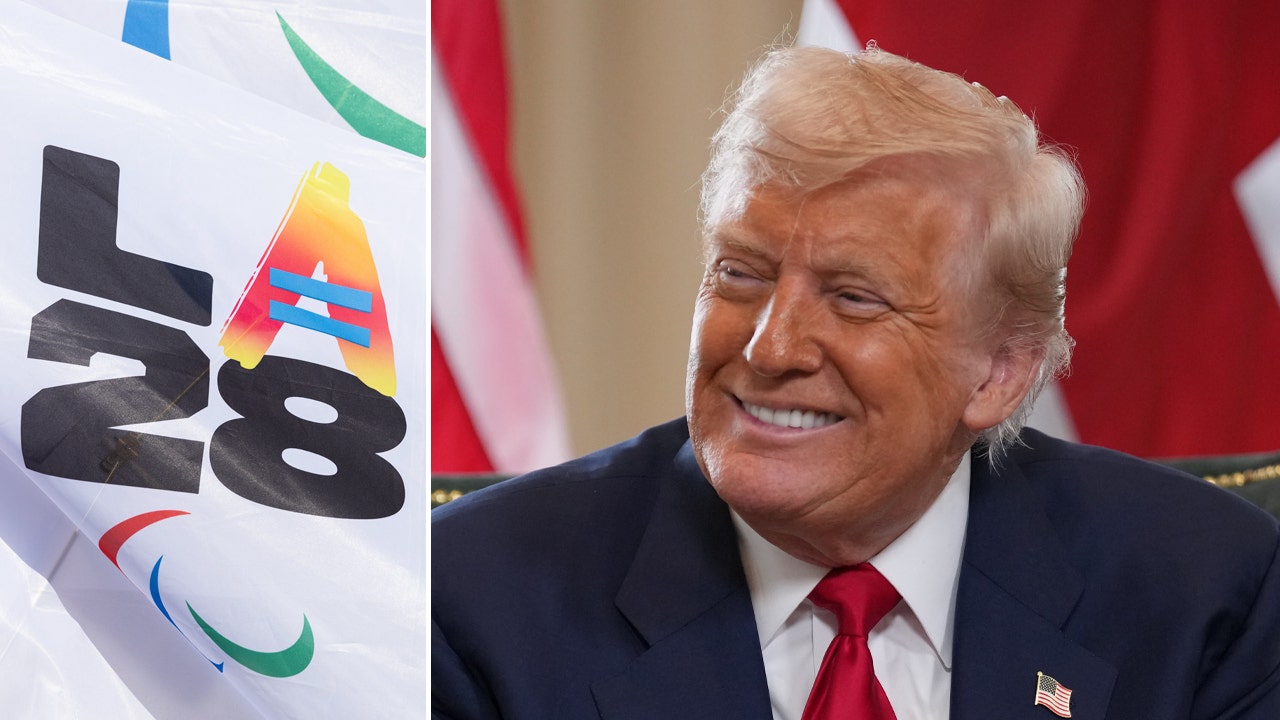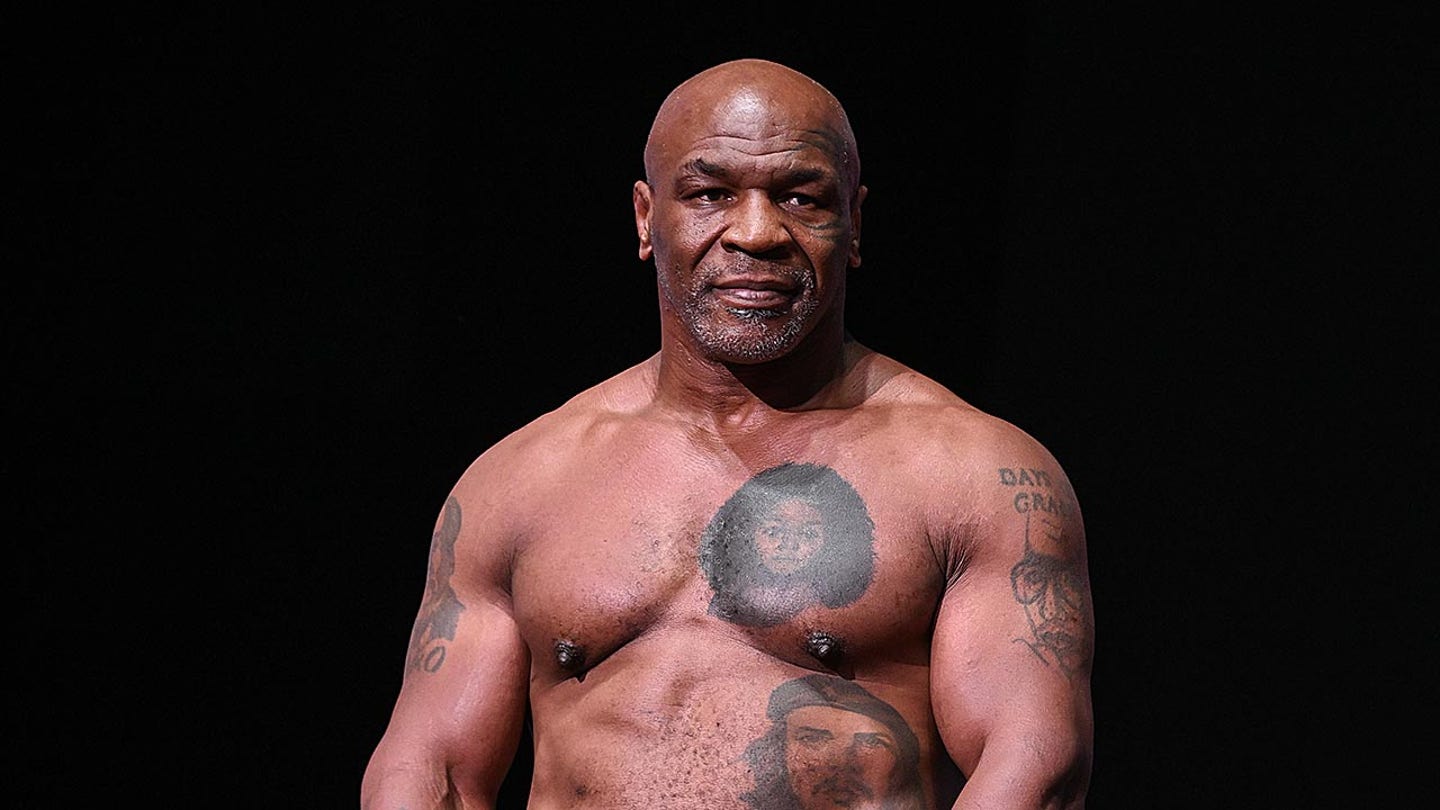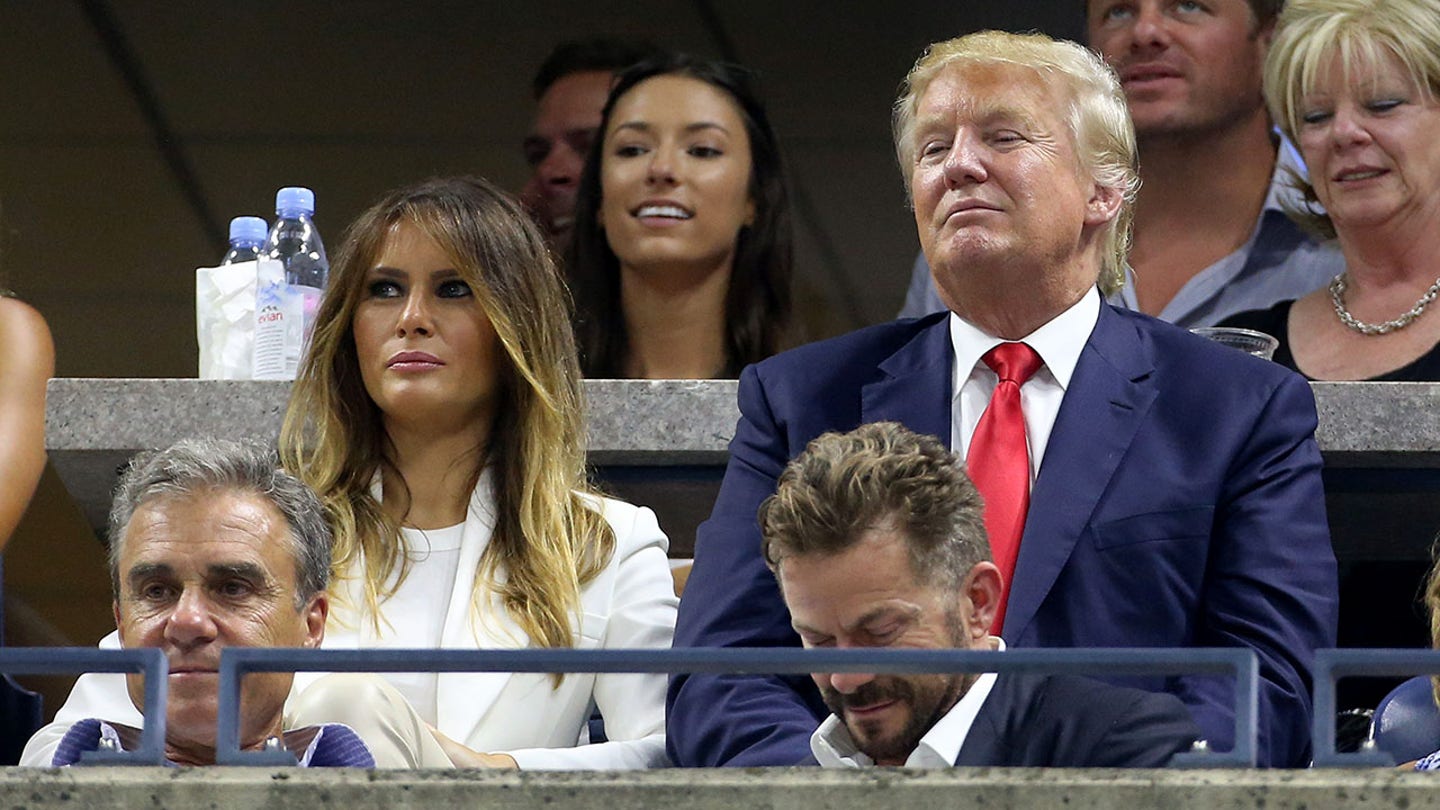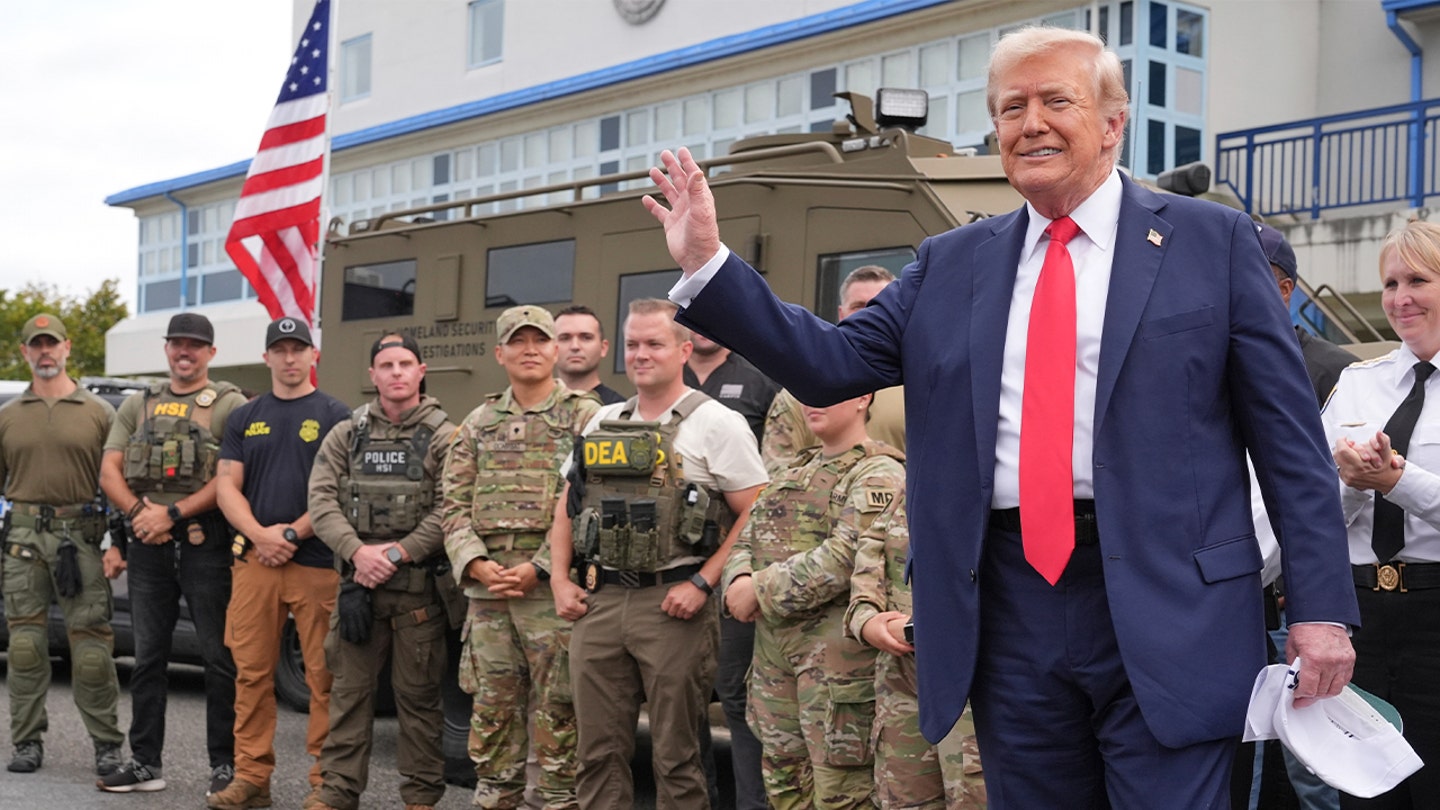
White House responds after US Olympic team indicates it's looking into genetic tests to protect women's sports
Entities mentioned:
- United States Olympic & Paralympic Committee (USOPC): Competitive spirit, Fairness, Professional pride
- White House: Righteousness, Pride, Influence
- President Donald Trump: Determination, Power, Legacy
- International Olympic Committee (IOC): Fairness, Unity, Professional pride
Article Assessment:
Credibility Score: 75/100
Bias Rating: 65/100 (Lean Right)
Sentiment Score: 55/100
Authoritarianism Risk: 40/100 (Generally Democratic)
Bias Analysis:
The article leans right, focusing heavily on Trump's executive order and conservative viewpoints. While it includes some opposing perspectives, the framing and source selection favor a conservative stance on transgender athletes in sports.
Key metric: Olympic Medal Count
Let me tell you something, folks - this is a GAME-CHANGER in the world of sports! The USOPC is stepping up to the plate with a championship mentality, looking to level the playing field in women's athletics. They're not just talking the talk, they're walking the walk with genetic testing options. This is like bringing in instant replay to make sure every call is fair and square. The White House is cheering from the sidelines, backing Trump's executive order like it's the game-winning play. We're seeing a full-court press to protect the integrity of women's sports, and let me tell you, it's crunch time! The IOC is huddling up, ready to make some fourth-quarter moves to ensure fairness across the board. This isn't just about one race or one game - we're talking about the whole season, the whole legacy of women's athletics! It's a high-stakes match, and these players are leaving it all on the field!

Mike Tyson admits he used fentanyl 'quite a few times' during his boxing career as painkiller
Entities mentioned:
- Mike Tyson: Recognition, Legacy, Professional pride
- White House: Control, Power, Influence
- Athlete Coalition: Unity, Influence, Justice
Article Assessment:
Credibility Score: 75/100
Bias Rating: 55/100 (Center)
Sentiment Score: 60/100
Authoritarianism Risk: 20/100 (Strongly Democratic)
Bias Analysis:
The article presents multiple viewpoints, including Tyson's personal experiences and the broader push for policy reform. While it leans slightly towards supporting cannabis reform, it maintains a relatively balanced tone.
Key metric: Drug Policy Reform Progress
Let me tell you something, folks - this is a GAME-CHANGER! Mike Tyson, the heavyweight champ of controversy, is stepping into the ring against the federal government's drug policies. He's not pulling any punches, admitting to past fentanyl use like he's calling out an opponent before a title fight. But now, Tyson's got a new team behind him - a roster of all-star athletes pushing for cannabis reform. They're going for the knockout, lobbying the White House to reschedule marijuana faster than Iron Mike's famous left hook. This is fourth quarter, championship-level strategy, folks! Tyson and his squad are showing true competitive spirit, refusing to throw in the towel on cannabis reform. They're playing offense, defense, and special teams all at once in this high-stakes policy matchup!

Trump to attend US Open men's final in New York
Entities mentioned:
- Donald Trump: Recognition, Influence, Power
- White House: Duty, Control, Influence
- US Open: Competitive spirit, Recognition, Legacy
- Taylor Fritz: Competitive spirit, Ambition, Pride
- Novak Djokovic: Competitive spirit, Ambition, Legacy
- Carlos Alcaraz: Competitive spirit, Ambition, Recognition
- Jannik Sinner: Competitive spirit, Ambition, Recognition
- Felix Auger-Aliassime: Competitive spirit, Ambition, Recognition
- John McEnroe: Professional pride, Recognition, Loyalty
- Melania Trump: Duty, Loyalty, Recognition
- New York Yankees: Competitive spirit, Professional pride, Unity
- Pittsburgh Steelers: Competitive spirit, Professional pride, Unity
Article Assessment:
Credibility Score: 70/100
Bias Rating: 55/100 (Center)
Sentiment Score: 55/100
Authoritarianism Risk: 30/100 (Generally Democratic)
Bias Analysis:
The article presents mostly factual information with a slight lean towards favorable coverage of Trump's activities. The source (Fox News) is mentioned, which is known to have a conservative bent, but the content itself is relatively neutral in tone.
Key metric: Political Engagement and Public Perception
As a social scientist, I analyze that this article highlights President Trump's continued engagement with high-profile sporting events, which can be seen as a strategic move to maintain public visibility and appeal to a broad audience. His attendance at these events, particularly in New York, may be an attempt to reinforce his connection to his home state and its cultural institutions. The article's mention of Trump's past and future sports event attendance suggests a pattern of using these occasions for public relations purposes. This approach can influence public perception and political engagement by presenting the president in a relatable, non-political context. However, the effectiveness of this strategy may vary depending on public sentiment towards the president and the reception he receives at these events.

White House fires back after New York governor takes swipe at Trump about 'NFL RedZone' featuring commercials
Entities mentioned:
- White House: Self-preservation, Control, Influence
- Kathy Hochul: Political ambition, Competitive spirit, Influence
- Donald Trump: Power, Influence, Recognition
- Scott Hanson: Professional pride, Duty, Loyalty
- NFL: Greed, Control, Influence
- ESPN: Greed, Competitive spirit, Control
Article Assessment:
Credibility Score: 70/100
Bias Rating: 55/100 (Center)
Sentiment Score: 35/100
Authoritarianism Risk: 30/100 (Generally Democratic)
Bias Analysis:
The article presents multiple viewpoints, including those from both political parties and industry professionals. However, it gives slightly more space to the White House's response, potentially indicating a slight center-right lean.
Key metric: Media and Entertainment Industry Performance
As a social scientist, I analyze that this article highlights the intersection of politics, media, and sports entertainment. The introduction of commercials to NFL RedZone, a previously commercial-free broadcast, represents a significant shift in the media landscape. This change reflects the growing financial pressures and evolving business models in sports broadcasting. The political dimension added by Governor Hochul's attempt to link this change to 'Trump's America' demonstrates how even non-political issues can be weaponized in the current polarized political climate. The White House's sharp response further illustrates the tense and combative nature of political discourse. This situation may impact viewer experience and potentially affect NFL and ESPN's viewership and revenue, which are crucial metrics in the media and entertainment industry.

Trump, House GOP allies eye pathways to extend White House crime crackdown in DC
Entities mentioned:
- Donald Trump: Power, Control, Legacy
- House Republicans: Loyalty, Control, Security
- White House: Power, Control, Influence
- Rep. Andy Ogles: Security, Duty, Influence
- Rep. Anna Paulina Luna: Security, Control, Duty
- Rep. Andy Biggs: Security, Control, Influence
- Democrats: Righteousness, Freedom, Moral outrage
Article Assessment:
Credibility Score: 65/100
Bias Rating: 70/100 (Lean Right)
Sentiment Score: 55/100
Authoritarianism Risk: 75/100 (Authoritarian Tendencies)
Bias Analysis:
The article leans right, primarily quoting Republican sources and framing the issue from their perspective. While it mentions Democratic opposition, it doesn't provide equal space or depth to counter-arguments.
Key metric: Crime Rate in Washington D.C.
As a social scientist, I analyze that this article highlights a significant shift in the balance of power between federal and local government in Washington D.C. The proposed legislation aims to extend the President's authority over D.C.'s police force, potentially undermining local autonomy. This move could have far-reaching implications for federalism and urban governance in the U.S. The article suggests a decrease in homicides since federal intervention, but this claim requires further verification. The broader impact on crime rates, community-police relations, and local governance structures needs comprehensive study. This situation raises important questions about the limits of federal power, the rights of D.C. residents, and the potential precedent for federal intervention in other cities.

Charlamagne tha God argues flag-burners 'don't give a damn about America' after Trump executive order
Entities mentioned:
- Charlamagne tha God: Patriotism, Righteousness, Duty
- President Donald Trump: Control, Patriotism, Power
- White House: Control, Patriotism, Security
- Supreme Court: Justice, Duty, Freedom
Article Assessment:
Credibility Score: 70/100
Bias Rating: 65/100 (Lean Right)
Sentiment Score: 35/100
Authoritarianism Risk: 60/100 (Mixed/Neutral)
Bias Analysis:
The article leans right, primarily due to its focus on a conservative radio host's perspective and the prominence given to the White House statement. While it includes some opposing viewpoints, the framing tends to favor anti-flag burning sentiments.
Key metric: Social Cohesion
As a social scientist, I analyze that this article highlights a tension between freedom of expression and patriotic sentiment in the United States. The discussion around flag burning touches on deep-seated issues of national identity, constitutional rights, and the limits of protest. Charlamagne tha God's perspective, while acknowledging free speech, questions the patriotism of those who burn the flag. This debate reflects broader societal divisions on what constitutes appropriate forms of protest and the meaning of patriotism. The executive order by President Trump signals an attempt to reinterpret established legal precedent, potentially impacting civil liberties. This controversy may exacerbate existing political polarization and challenge the balance between national unity and individual rights.

Indiana Republican state lawmakers set to visit the White House amid Trump redistricting push
Entities mentioned:
- Republican legislators from Indiana: Power, Loyalty, Influence
- White House: Power, Control, Influence
- President Donald Trump: Power, Control, Ambition
- Democrats: Power, Competitive spirit, Self-preservation
- Rep. Frank Mrvan: Self-preservation, Duty, Loyalty
- Rep. Andre Carson: Self-preservation, Duty, Loyalty
- Todd Huston: Power, Loyalty, Influence
- Rodric Bray: Power, Loyalty, Influence
- Gov. Gavin Newsom: Power, Competitive spirit, Influence
- Gov. Greg Abbott: Power, Loyalty, Influence
- Vice President JD Vance: Loyalty, Influence, Power
- Gov. Mike Braun: Power, Loyalty, Wariness
Article Assessment:
Credibility Score: 75/100
Bias Rating: 55/100 (Center)
Sentiment Score: 40/100
Authoritarianism Risk: 65/100 (Authoritarian Tendencies)
Bias Analysis:
The article presents multiple perspectives, including both Republican and Democratic actions and concerns. While it focuses more on Republican efforts, it does so in the context of a Republican-led initiative, balancing this with mentions of Democratic counteractions and some Republican hesitancy.
Key metric: Electoral Competitiveness
As a social scientist, I analyze that this article highlights a significant push for redistricting efforts by the Republican Party, particularly driven by the White House under Trump's administration. This move aims to consolidate power in the House of Representatives by redrawing congressional maps in Republican-controlled states. The focus on Indiana as a potential 'test case' for mid-decade redistricting suggests a broader strategy that could have far-reaching implications for electoral competitiveness across multiple states. This effort, if successful, could significantly alter the balance of power in the House, potentially undermining the principle of fair representation and exacerbating political polarization. The involvement of high-level officials, including the President and Vice President, in pressuring state lawmakers indicates the high stakes and strategic importance placed on this initiative. However, the article also notes some resistance and skepticism among Republican operatives in Indiana, highlighting the complex political calculations involved in such a controversial move.

‘Clever and a little bit offensive’: Inside the White House’s norm-breaking social media strategy
Entities mentioned:
- Donald Trump: Power, Influence, Recognition
- White House: Influence, Control, Recognition
- Alex Bruesewitz: Loyalty, Professional pride, Influence
- JD Vance: Ambition, Recognition, Influence
- Gavin Newsom: Ambition, Competitive spirit, Influence
- Steven Cheung: Loyalty, Influence, Competitive spirit
- Abigail Jackson: Loyalty, Professional pride, Influence
Article Assessment:
Credibility Score: 75/100
Bias Rating: 55/100 (Center)
Sentiment Score: 50/100
Authoritarianism Risk: 35/100 (Generally Democratic)
Bias Analysis:
The article presents multiple perspectives, including critics and supporters of the new strategy. While it leans slightly towards skepticism of the approach, it provides balanced coverage of its effectiveness and implications.
Key metric: Public Opinion and Voter Engagement
As a social scientist, I analyze that this article highlights a significant shift in White House communication strategy, emphasizing a more informal, meme-driven approach to social media. This change reflects broader trends in political communication, particularly targeting younger demographics and leveraging online engagement. The strategy aims to increase voter engagement and shape public opinion, potentially at the cost of traditional norms of governmental communication. This approach may boost short-term engagement but risks undermining the perceived credibility of official White House communications. The long-term impact on public trust in government institutions and the quality of political discourse remains uncertain.

Did Trump really end six — or seven — wars?
Entities mentioned:
- Donald Trump: Recognition, Legacy, Power
- Volodymyr Zelensky: Security, Unity, Self-preservation
- White House: Influence, Legacy, Recognition
- Celeste Wallander: Professional pride, Duty, Wariness
- Ilham Aliyev: Loyalty, Recognition, Influence
- Hun Manet: Loyalty, Recognition, Influence
- Narendra Modi: Pride, Self-preservation, Power
Article Assessment:
Credibility Score: 75/100
Bias Rating: 55/100 (Center)
Sentiment Score: 45/100
Authoritarianism Risk: 35/100 (Generally Democratic)
Bias Analysis:
The article presents a balanced view, acknowledging Trump's successes while critically examining his claims. It includes perspectives from various sources and provides context for each conflict mentioned, indicating a relatively centrist approach.
Key metric: US Global Influence
As a social scientist, I analyze that this article critically examines President Trump's claims of ending multiple international conflicts. While acknowledging some diplomatic successes, it highlights the complexity and fragility of these agreements. Trump's approach seems to prioritize quick, visible wins over long-term conflict resolution, potentially risking sustainable peace for short-term recognition. The article suggests that Trump's foreign policy strategy may be more focused on personal legacy and Nobel Prize aspirations than on comprehensive diplomatic solutions. This approach could impact US global influence by presenting a mixed image of American leadership - assertive in brokering deals but potentially lacking in follow-through and depth of engagement.
- Read more about Did Trump really end six — or seven — wars?
- Log in to post comments

Trump gave the Oval Office a gilded makeover – and covered the cost himself
Entities mentioned:
- Donald Trump: Pride, Legacy, Recognition
- White House: Professional pride, Legacy, Influence
- Joe Biden: Legacy, Duty, Influence
Article Assessment:
Credibility Score: 65/100
Bias Rating: 55/100 (Center)
Sentiment Score: 70/100
Authoritarianism Risk: 30/100 (Generally Democratic)
Bias Analysis:
The article presents a generally neutral tone, providing factual details about the changes made to the Oval Office. However, there's a slight lean towards positive framing of Trump's actions, emphasizing his personal financing and 'golden touch' without critical perspectives.
Key metric: Presidential Approval Rating
As a social scientist, I analyze that this article's focus on Trump's personal financing of White House renovations and aesthetic changes may impact public perception of his presidency. The emphasis on gold accents and luxurious additions could be seen as either a display of wealth and success or as excessive and out of touch with average Americans. This could potentially influence approval ratings, particularly among different socioeconomic groups. The article's highlighting of Trump's personal investment in these changes may also affect perceptions of his commitment to the office and his willingness to use personal resources for what he sees as improvements to the nation's most iconic building.